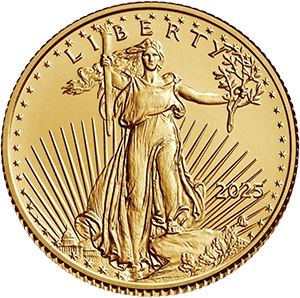
Gold coins are more than shiny heirlooms. They’re tangible links to family history, symbols of wealth preservation, and sometimes the foundation of a lasting legacy. But when those coins pass from one generation to the next, a practical question arises: Are inherited gold coins taxable?
The answer depends on how they’re valued, how you handle them after inheritance, and when you decide to sell. Let’s break it down.
Estate vs. Inheritance
When gold coins are passed down, they become part of the decedent’s estate. The IRS generally requires estates above a certain exemption amount to file estate taxes. For 2025, that threshold is $13.61 million per individual.
-
If the estate is below that amount → no federal estate tax applies.
-
If above → the estate itself may owe taxes before assets (like gold coins) are distributed.
Key point: Beneficiaries typically don’t pay taxes just for receiving gold coins. Instead, taxation is triggered later, if and when you sell.
The Step-Up in Basis Advantage
Inherited assets—including gold coins—receive what’s called a “step-up in basis.”
That means the coins’ cost basis is adjusted to their fair market value on the date of inheritance (or the alternate valuation date if chosen).
Example:
-
Your grandfather bought a Saint-Gaudens Double Eagle in 1980 for $500.
-
At the time of his passing in 2025, the coin is worth $2,500.
-
Your basis is “stepped up” to $2,500.
If you sell immediately for $2,500 → no taxable gain.
If you hold and later sell for $3,000 → you owe capital gains on $500, not on the original $2,500 increase.
Capital Gains: When Taxes Do Apply

Taxes on inherited gold coins usually come into play when you sell.
-
All inherited property is treated as long-term for capital gains purposes, no matter how long you personally held it.
-
Long-term capital gains tax rates (0%, 15%, or 20%) will apply depending on your income bracket.
-
Some states also impose their own capital gains or inheritance taxes.
Numismatic vs. Bullion Coins
Not all coins are taxed equally.
-
Bullion coins (like American Gold Eagles or Canadian Maple Leafs) are valued primarily on metal content.
-
Numismatic coins (rare, graded, or historical) may carry significant premiums.
Both receive the step-up in basis, but numismatic coins often require professional appraisal to establish fair market value for estate or tax purposes.
.jpg)
Planning Considerations
If you’ve inherited gold coins, here’s how to manage both value and tax exposure:
-
Get a Professional Appraisal – Especially important for rare or graded coins.
-
Keep Documentation – Estate valuation statements and appraisals help establish your cost basis.
-
Know Your Options – You can hold the coins as a long-term hedge, sell for liquidity, or incorporate them into a diversified portfolio.
-
Consult a Tax Professional – Rules can differ at the state level, and personal situations vary.
The American Standard Gold Perspective
At American Standard Gold, we view inherited coins not just as assets, but as family legacies. Understanding tax implications is key, but so is making sure you maximize both sentimental and financial value.
Our team helps families:
-
Appraise inherited collections for fair market value.
-
Advise on portfolio placement of inherited gold and silver.
-
Provide transparent buyback options if liquidation is the right move.
Knowledge Preserves Value
So, are inherited gold coins taxable?
-
Not when you receive them.
-
Yes, when you sell them for more than their stepped-up basis.
Handled wisely, inherited gold can be more than a financial asset—it can become a cornerstone of generational wealth.
At American Standard Gold, we help you protect what matters most: your family’s legacy, your financial security, and your peace of mind.
If you’ve recently inherited coins and want clarity on their value and options for your future, schedule your free Precious Metals Wealth Checkup today.


